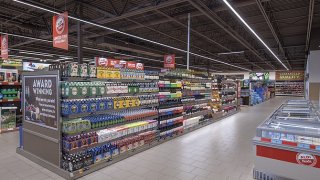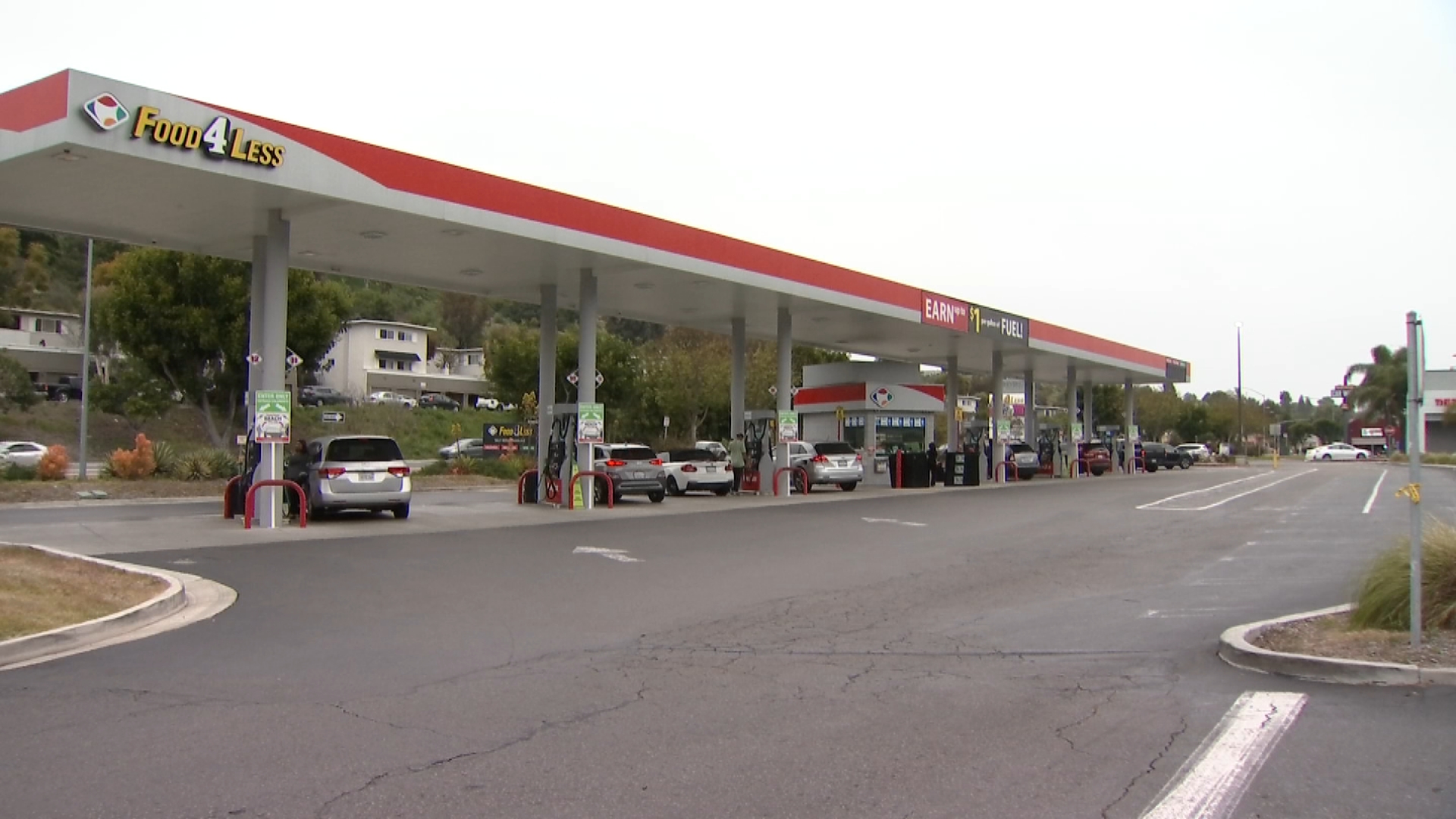
In 2016, Aldi opened its first store in California — in San Marcos. Since then, the German discount supermarket chain has opened a total of nine stores in San Diego County, including the addition of Mira Mesa, Chula Vista, Encinitas and Oceanside locations in 2019.
As a result, Aldi’s sales have doubled in the last five years, according to the company, and are projected to double again in the next five years.
Now, as part of its growth and expansion plan, Aldi, with more than 1,000 employees in Southern California and regional headquarters in Moreno Valley, plans to continue growing its San Diego footprint with the addition of more stores moving forward.
Savvier Customers
“People are savvier about what they eat and how much they’re willing to pay for food,” said Tom Cindel, group director of operations and logistics for the company’s Moreno Valley division.
“At Aldi, we are constantly evolving to meet these changing eating habits and dietary preferences, without hiking the cost. We react quickly to food trends and deliver the same quality at a lower price. This innovative approach has been working in the San Diego area, which is why we’re continuing to expand here. Our streamlined stores and ever-growing array of organic and better-for-you foods are a natural fit for the active, health-focused lifestyle in San Diego,” he added.
While there are other local grocery chain options, like Jimbo’s, that tout themselves as organic vendors, Cindel said there are a number of reasons why Aldi stands out among the rest. The priority for the company is to sell the best food at the best prices and save people money, he said.
Local
Cheaper Than Walmart?
An independent analysis by Wolfe Research shows Aldi prices are around 15% cheaper than Walmart in markets like Houston and Chicago.
According to Morgan Stanley, 19% of shoppers who switched retailers last year started buying at Aldi, second to Walmart.
Diane Youngpeter, who runs the blog “Aldi Nerd” as well as an Aldi Facebook page with over 30,000 members, wrote earlier this year: “I am willing to do the extra work (of bagging her own groceries, as Aldi shoppers must do) because the prices are amazing.”
Private Trailblazer
Cindel added that Aldi considers itself a private label trailblazer in its own right. For example, the company recently launched its Earth Grown line, which started as an Aldi Find, or limited time exclusive. The product flew off the shelves, said Cindel, which prompted the company to make Earth Grown products an everyday selection in as little as seven months.
“Our private-label business model enables us to work closely with suppliers,” said Cindel. “This is the fastest we’ve ever brought a line of products to market … We always listen to our customers’ feedback and adapt quickly to bring new products to shelves.”
Cindel added that the Aldi interior design is another winning factor for the company. He said in order to provide a streamlined shopping experience, all Aldi locations are about 12,000 square feet in retail space and feature only four or five aisles, which makes the stores easier to navigate than traditional supermarkets.
In order to better serve customers, Aldi stores receive shipments of fresh produce every day, said Cindel, while 5% to 10% of products in each store are regional items. This may include local craft beers, various types of breads and cuts of meat specific to the area, he said. Aldi is also committed to sustainable practices, said Cindel, which includes sourcing sustainable seafood from Sustainable Fisheries Partnership (SFP), a Hawaii-based nonprofit. Since 2011 it has been a member of the Roundtable on Sustainable Palm Oil, or RSPO, an industry-wide initiative.
“We’re proud to share that all palm oil used in our exclusive-brand food products is from RSPO-certified sustainable sources,” said Cindel. “We’re aiming to change palm oil use in all our nonfood products to RSPO-certified sources by the end of 2025.”
Additionally, Aldi is consistently working on improving the social and ecological standards of cocoa and coffee production, said Cindel.
Products that display the Rainforest Alliance, UTZ or Fair Trade USA labels are certifications of improved farming practices and compliance with required social standards, he said. “These labels quickly verify that Aldi products have been made with care for the environment and the people involved in bringing them to market.”
A Top Greenpeace Seafood Rating
Recently, Aldi ranked in the top five on Greenpeace USA’s Supermarket Seafood Ranking.
By the end of 2019, Aldi will have opened 73 stores in California since 2016 and is on track to open more than 10 new stores in the state in 2020.



